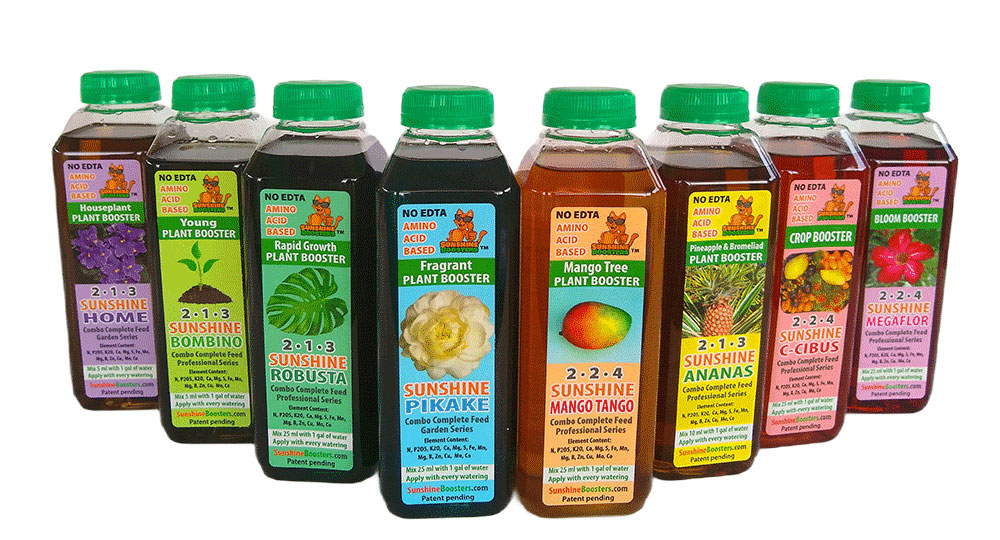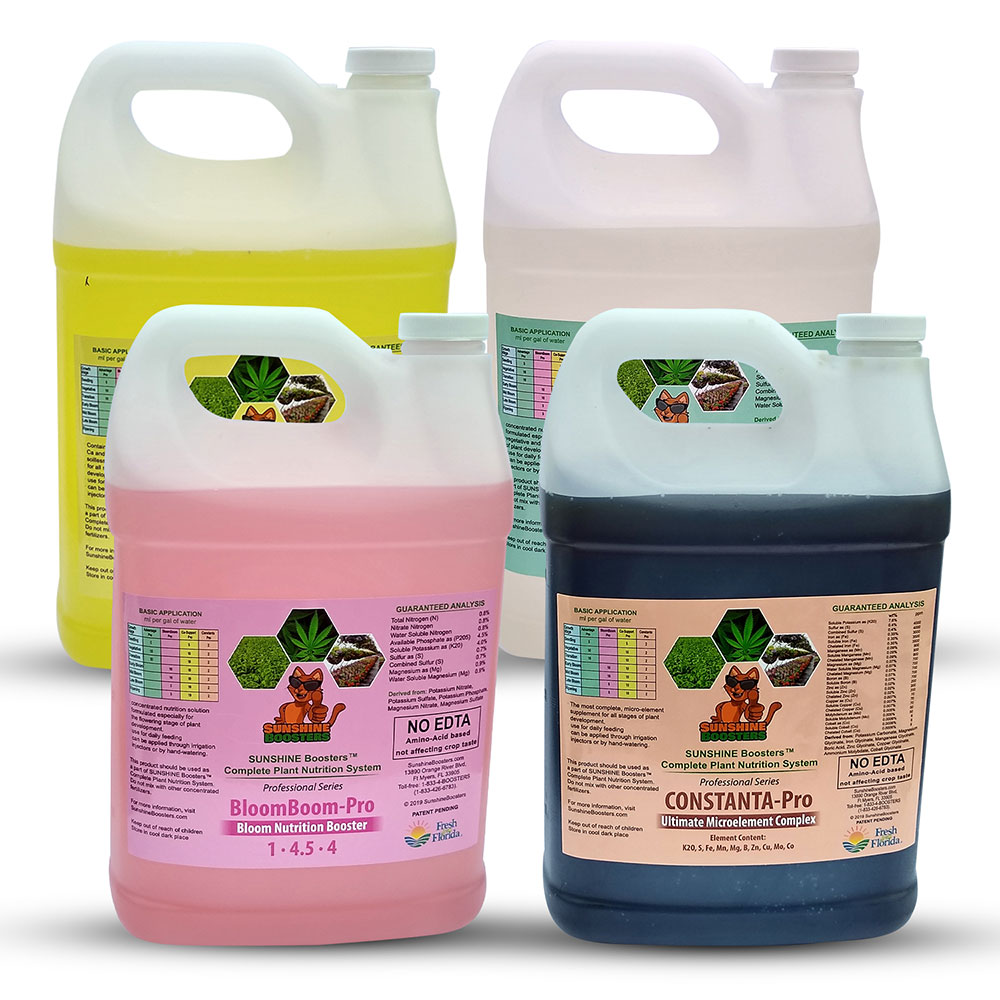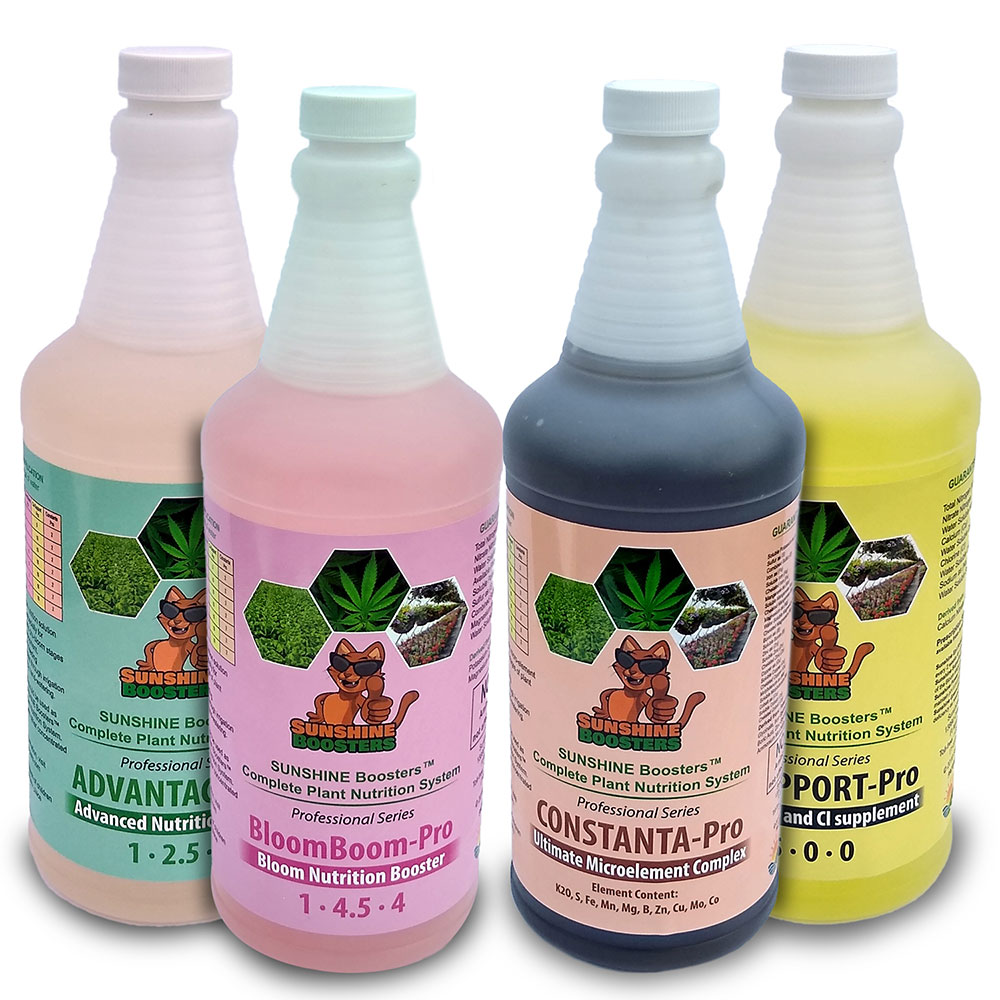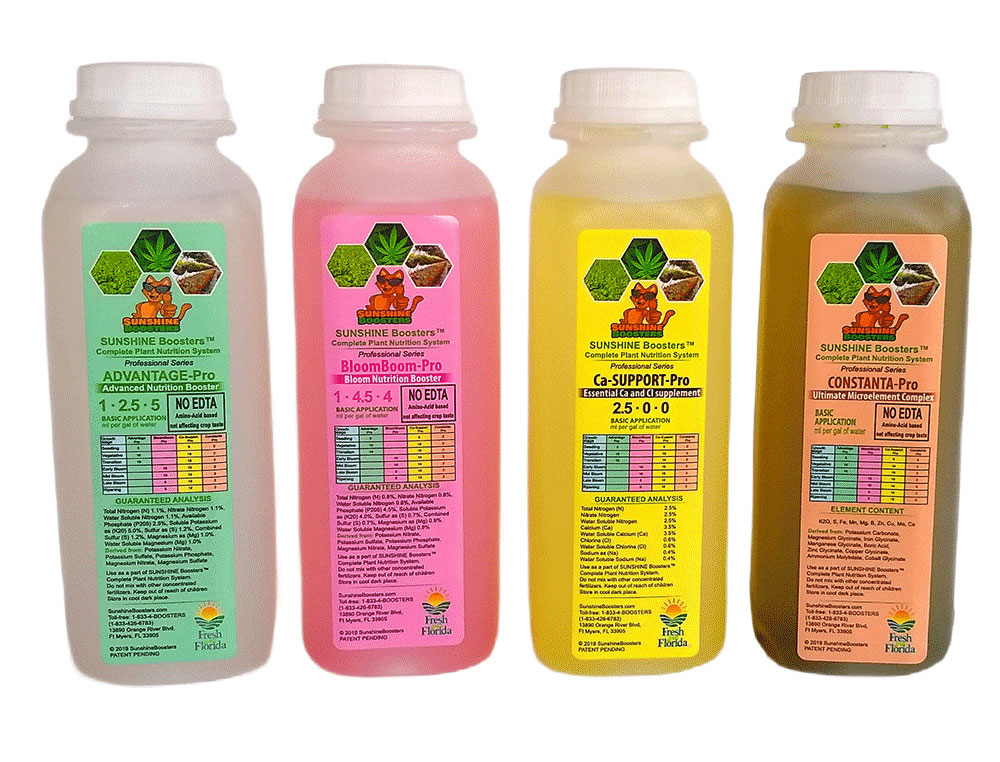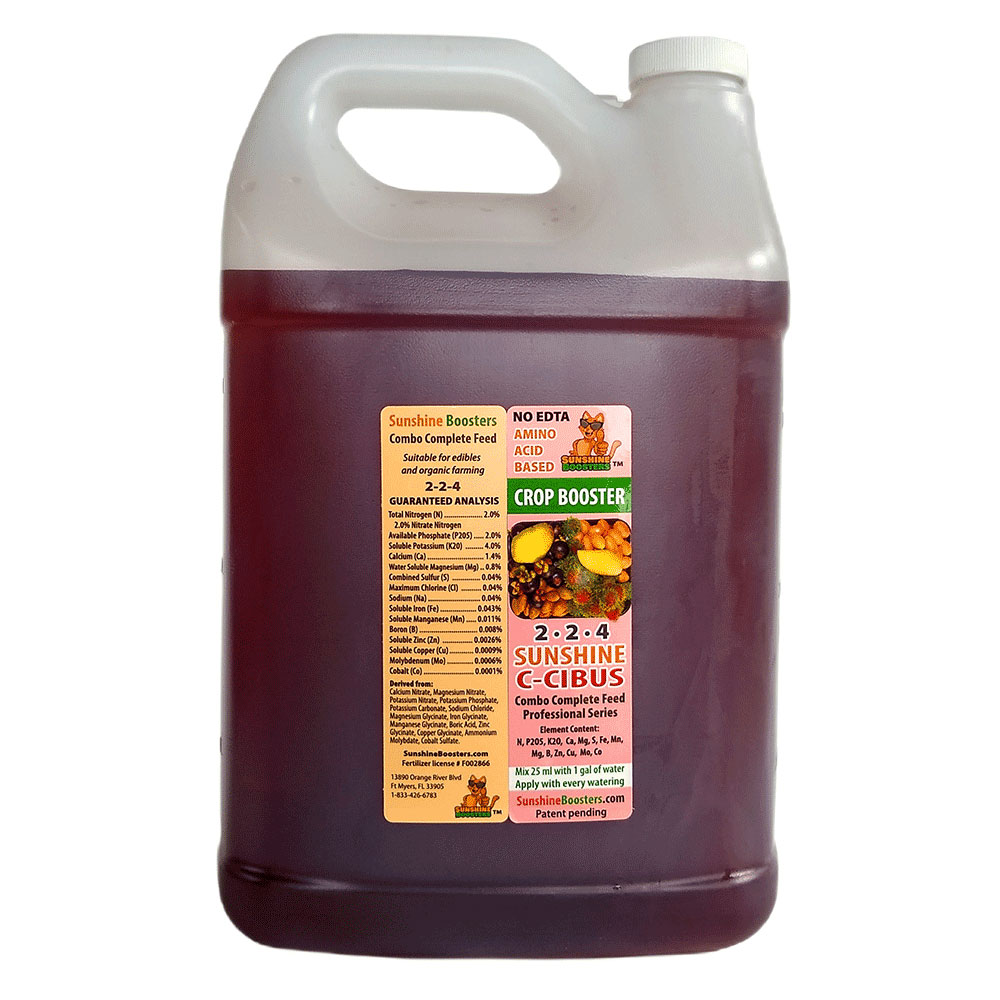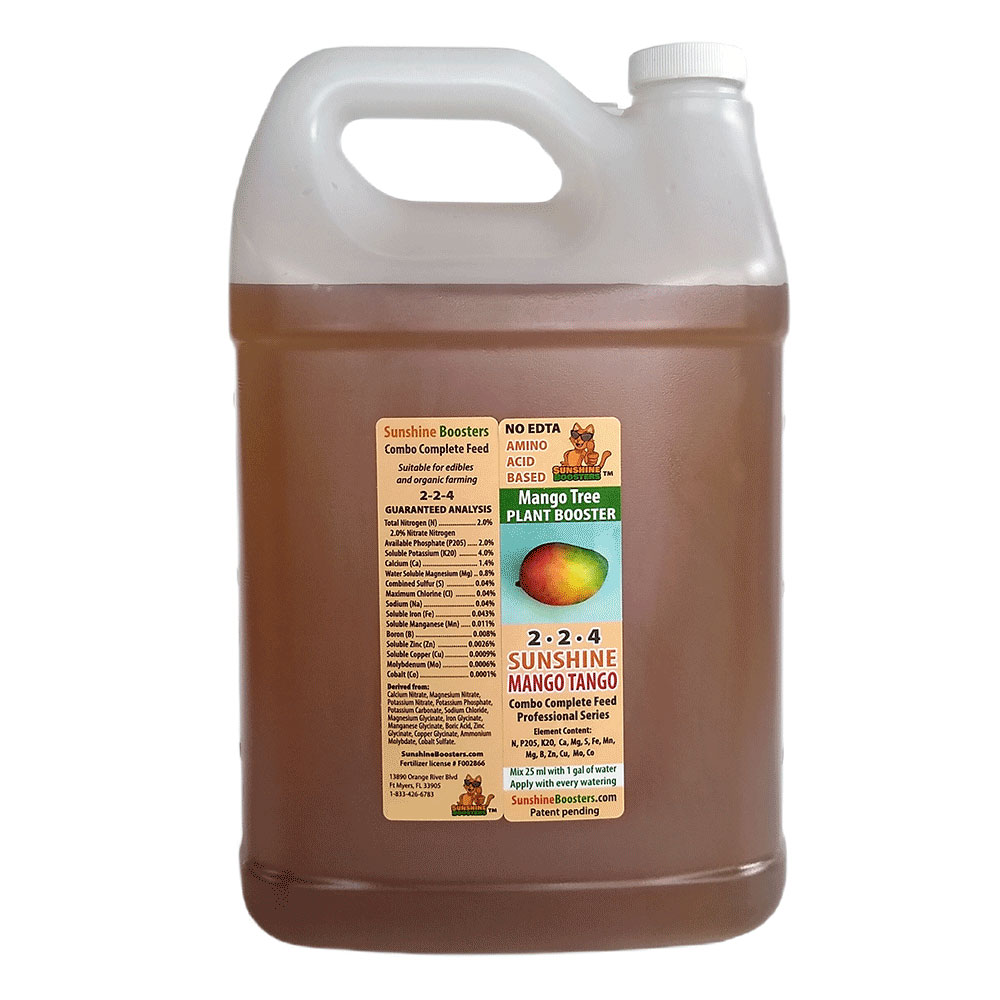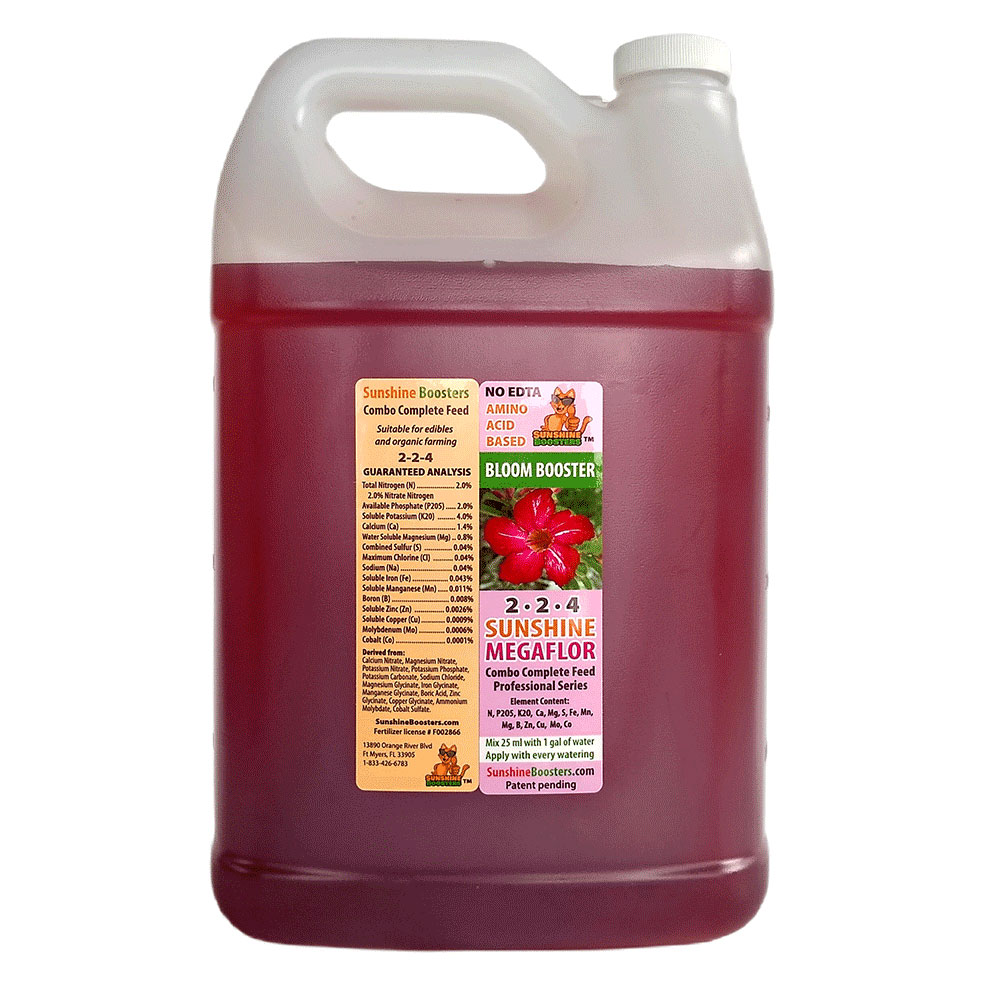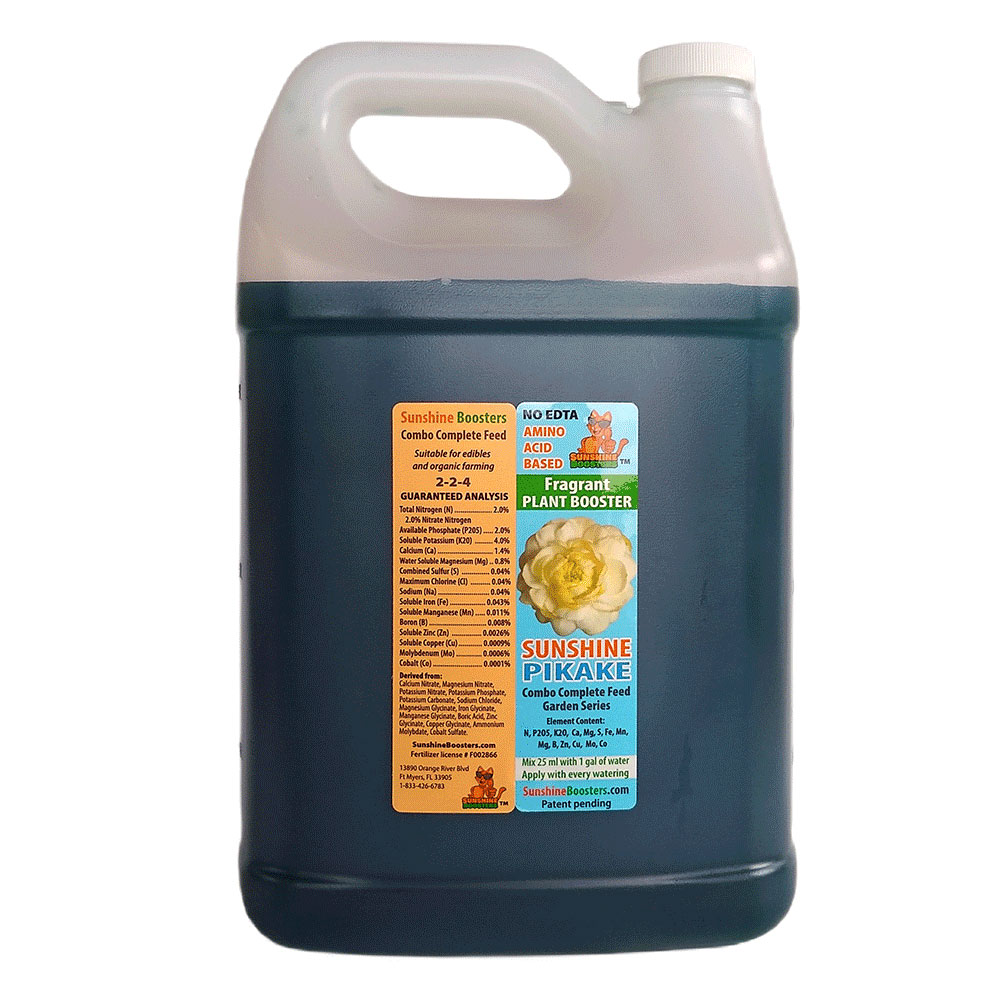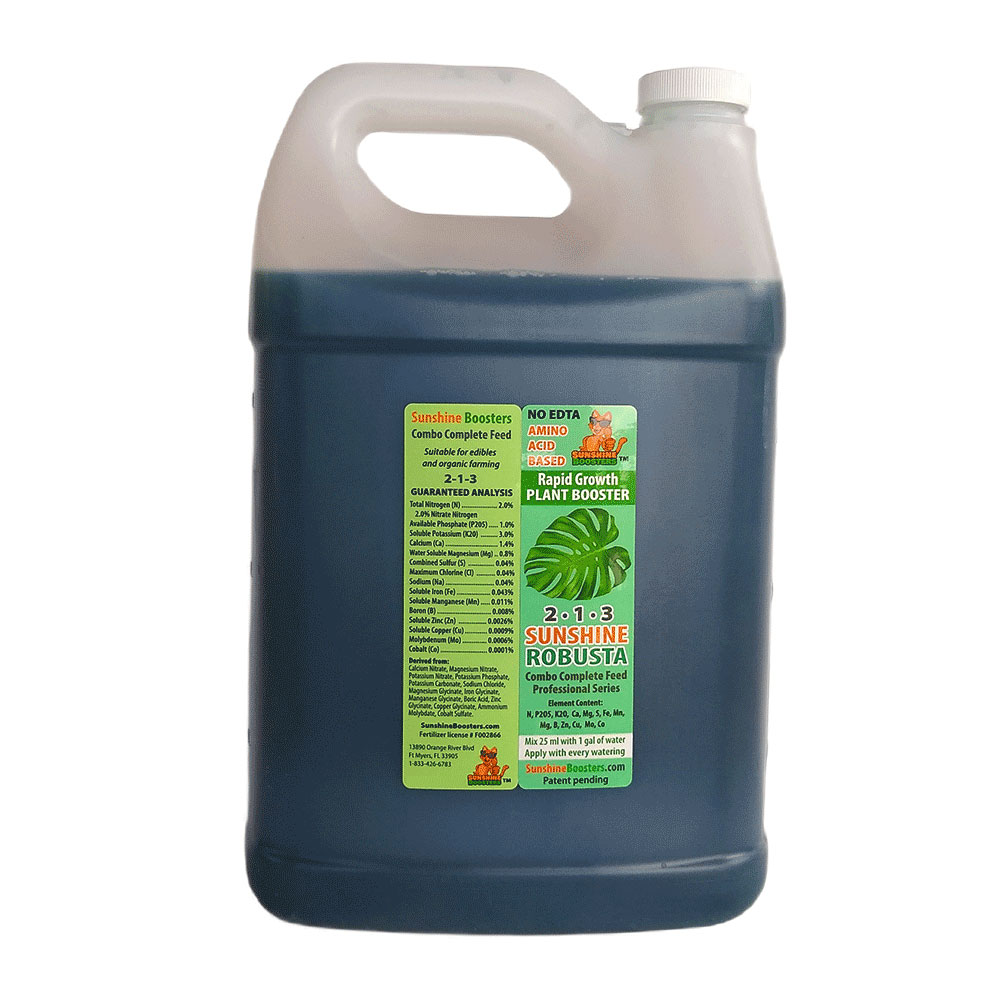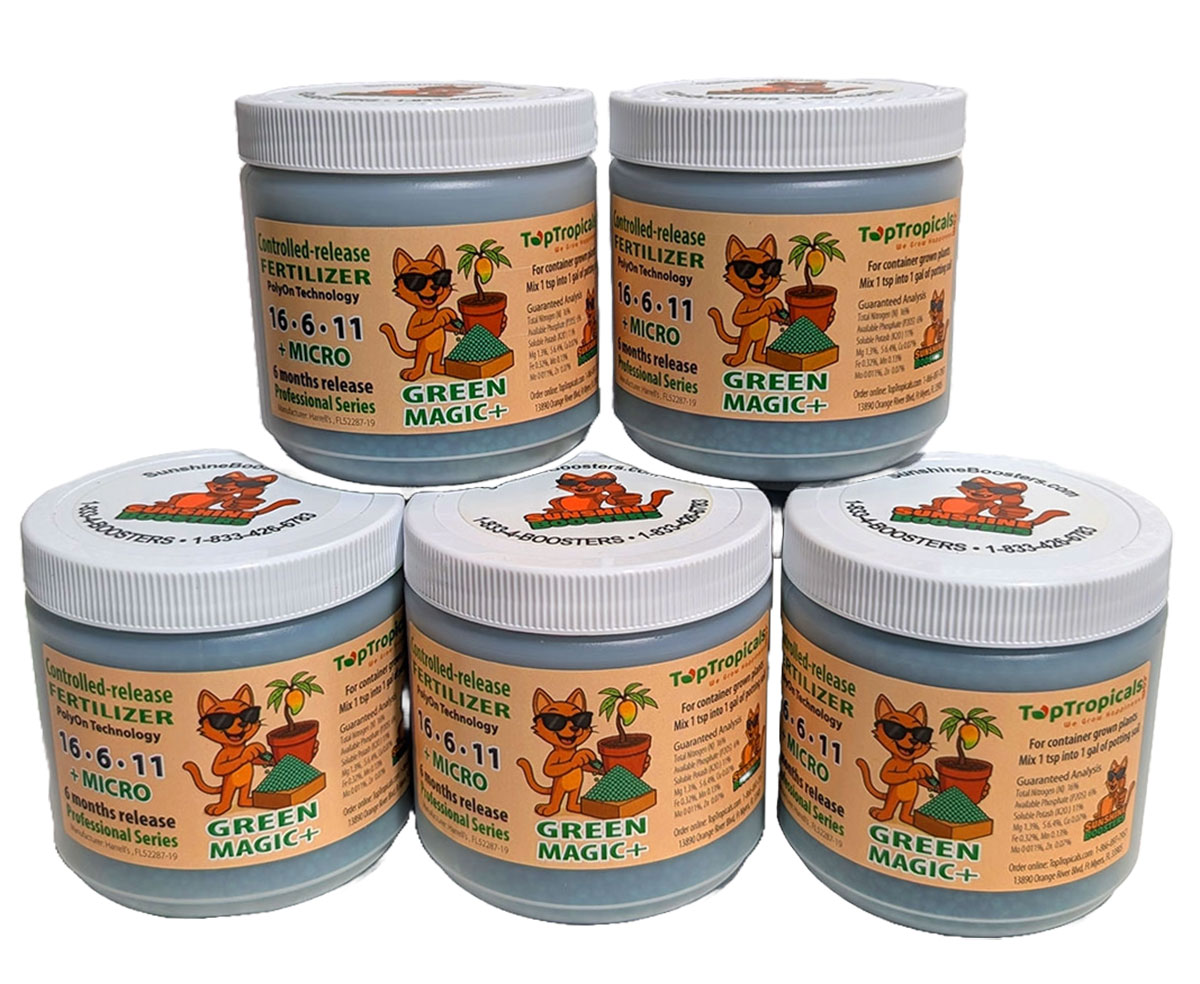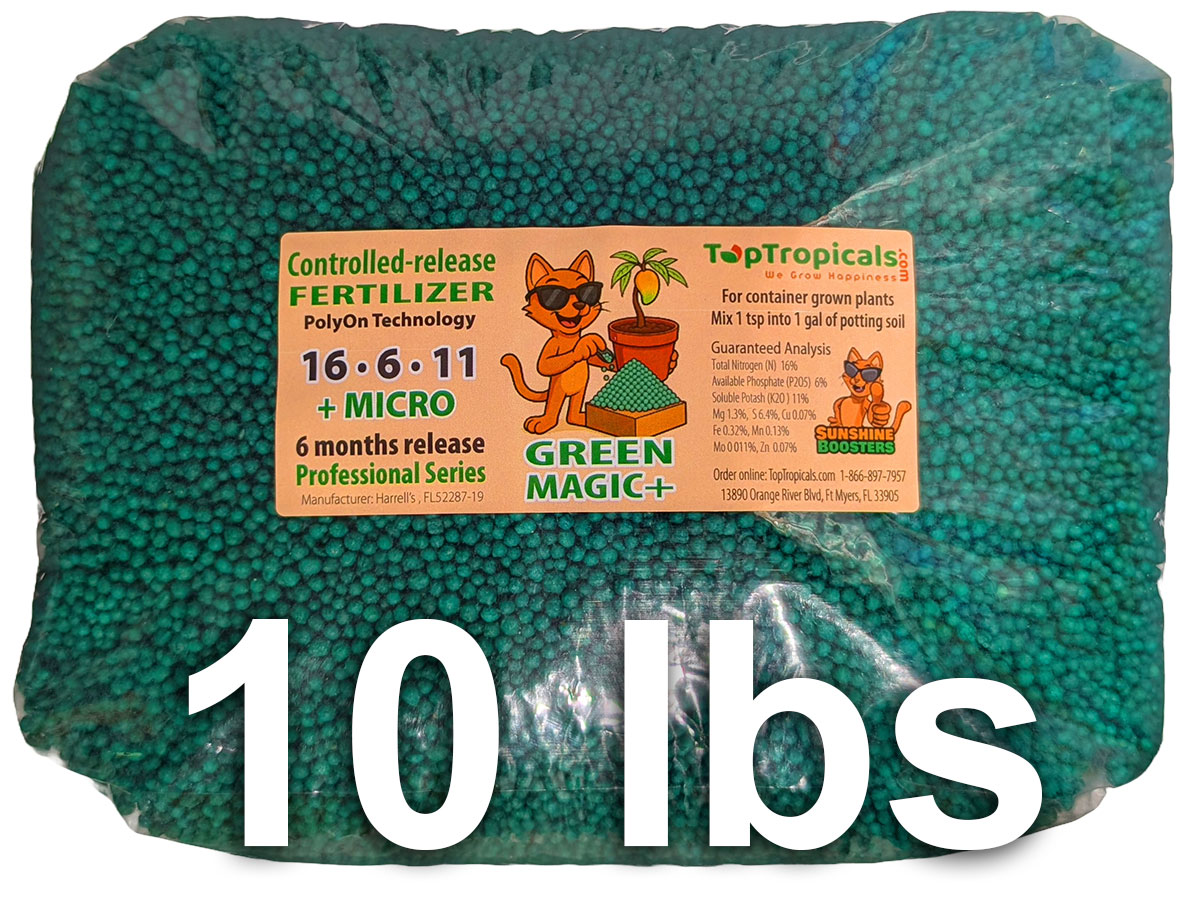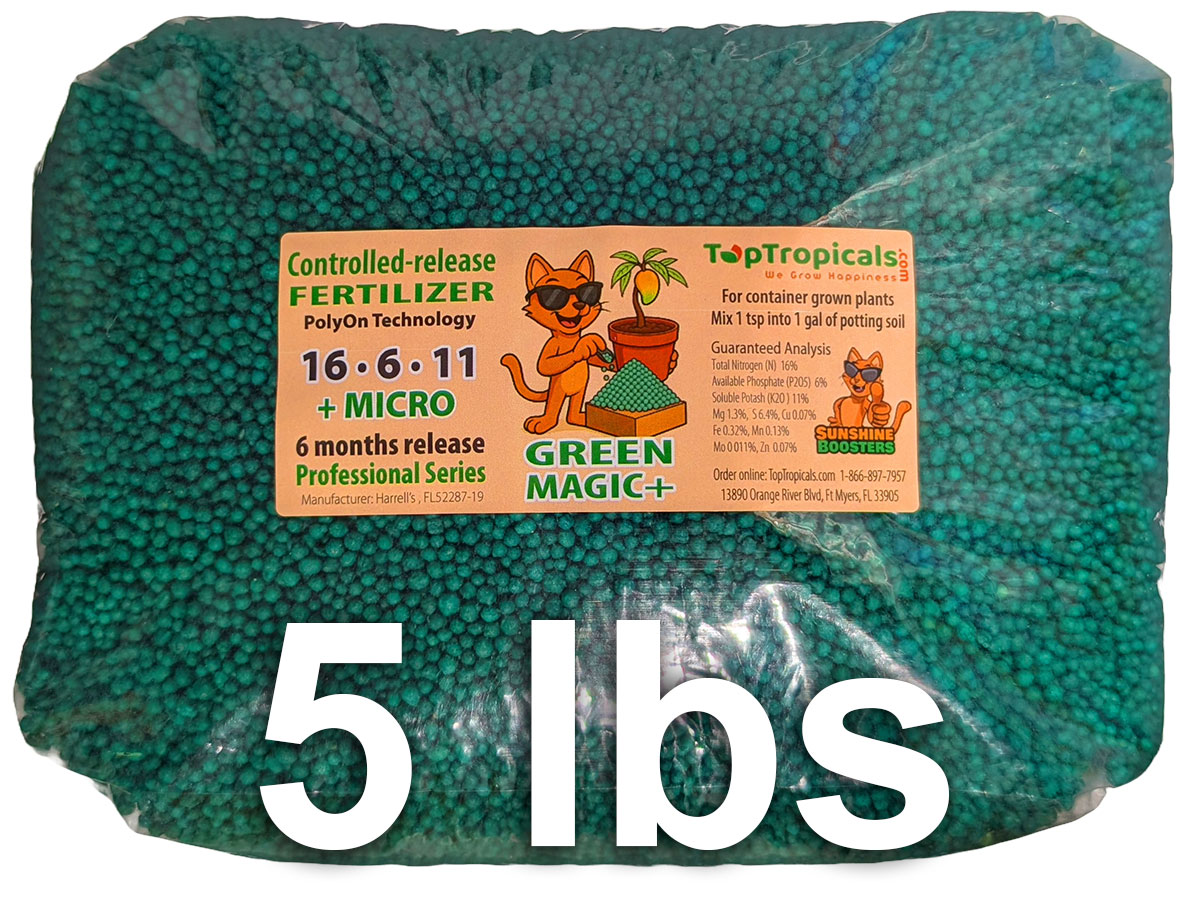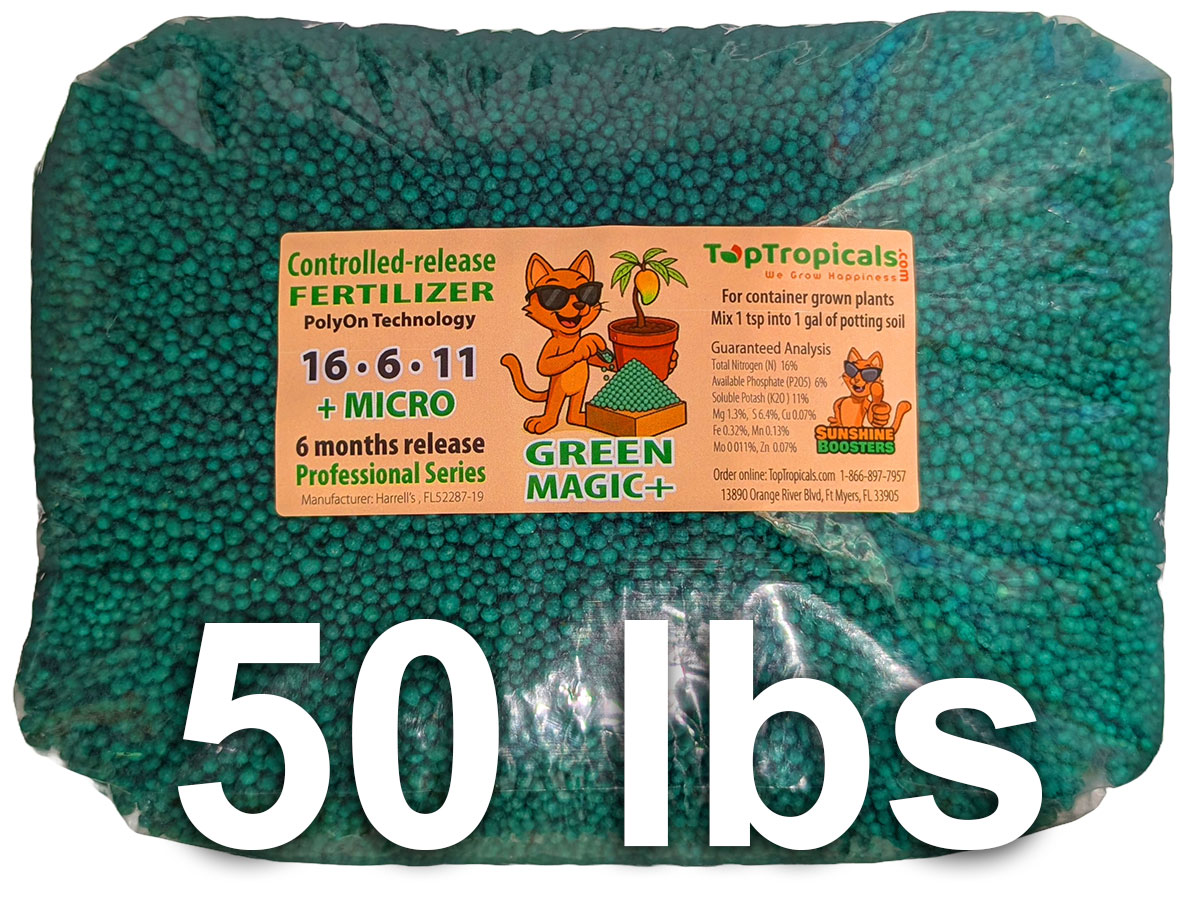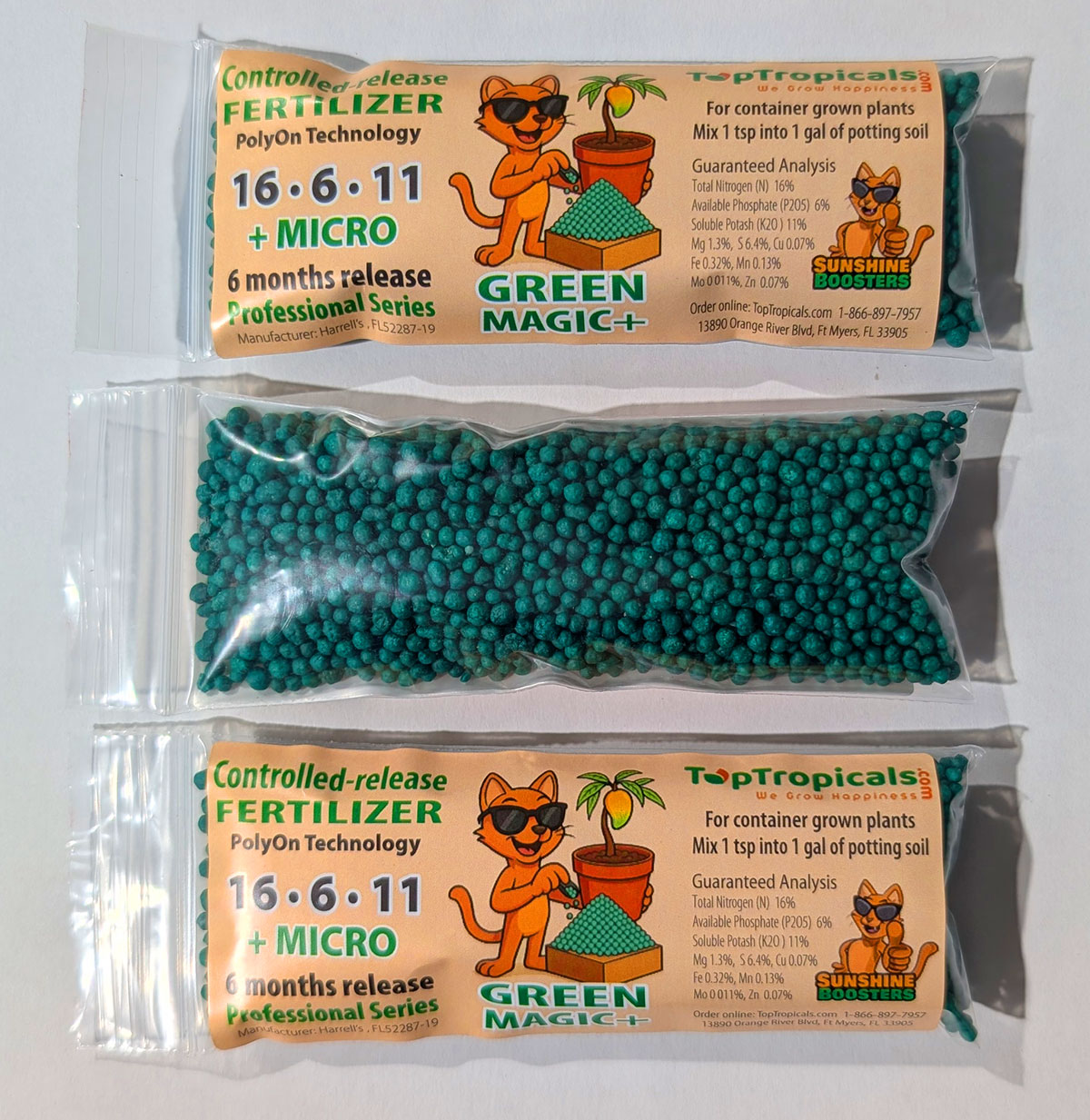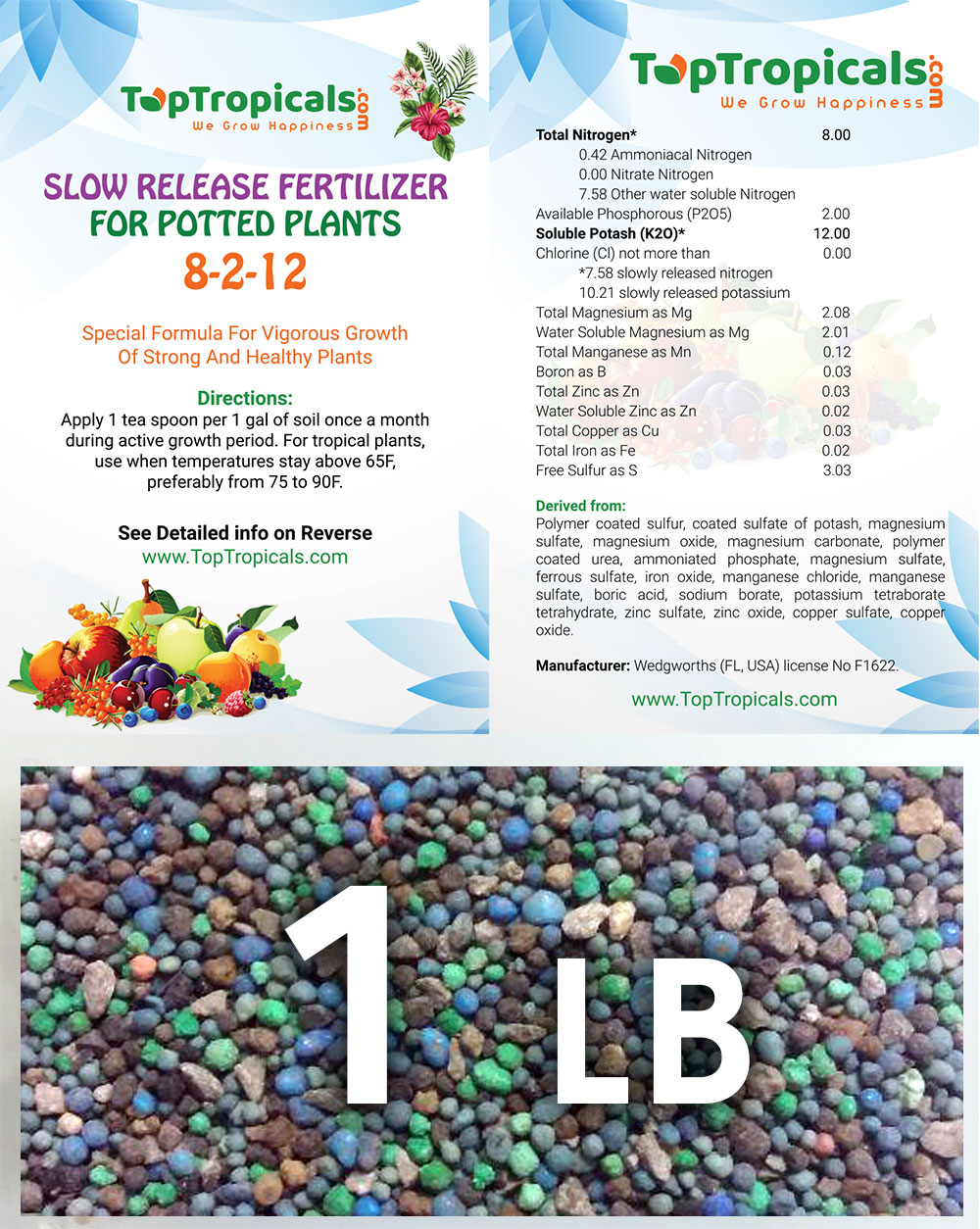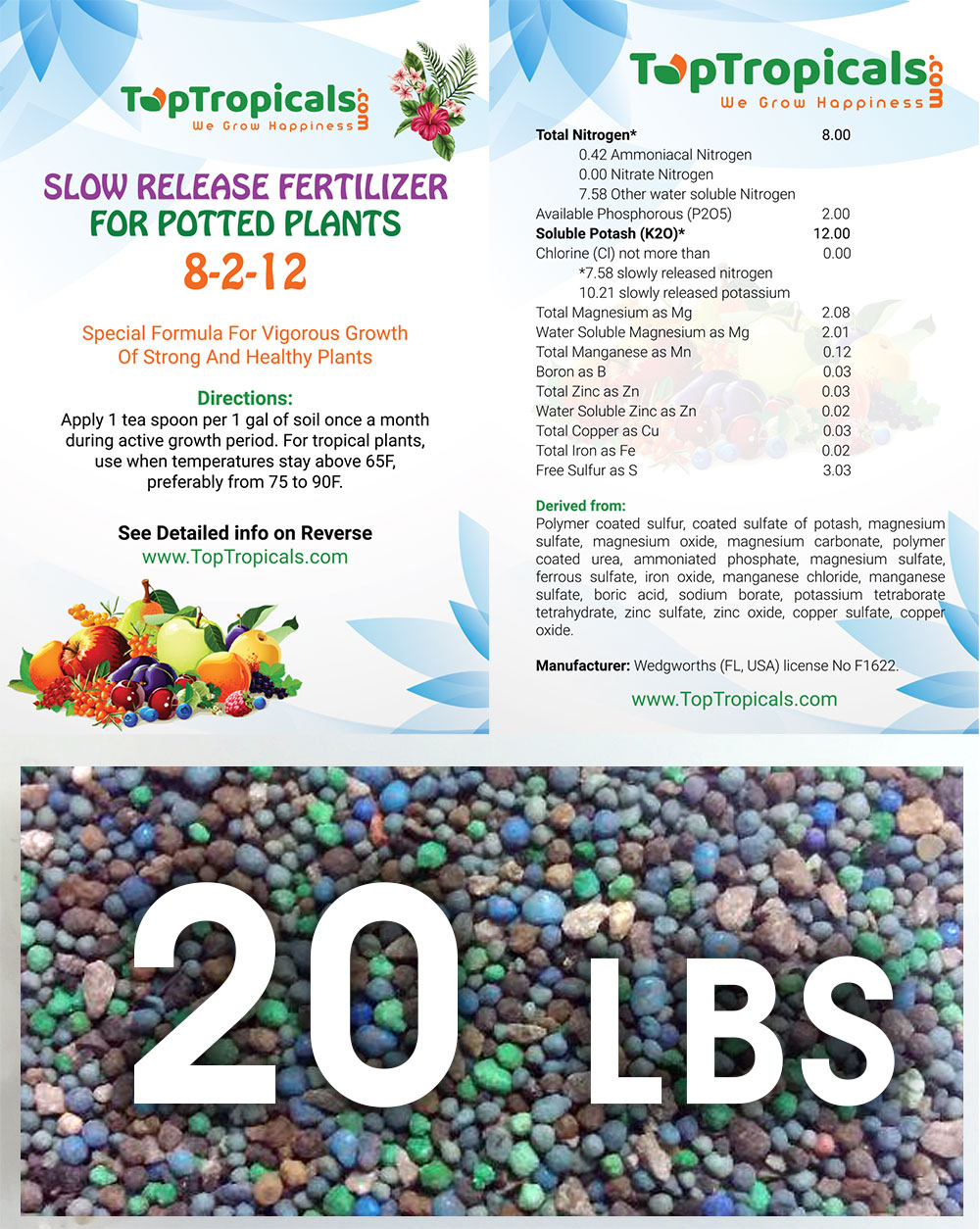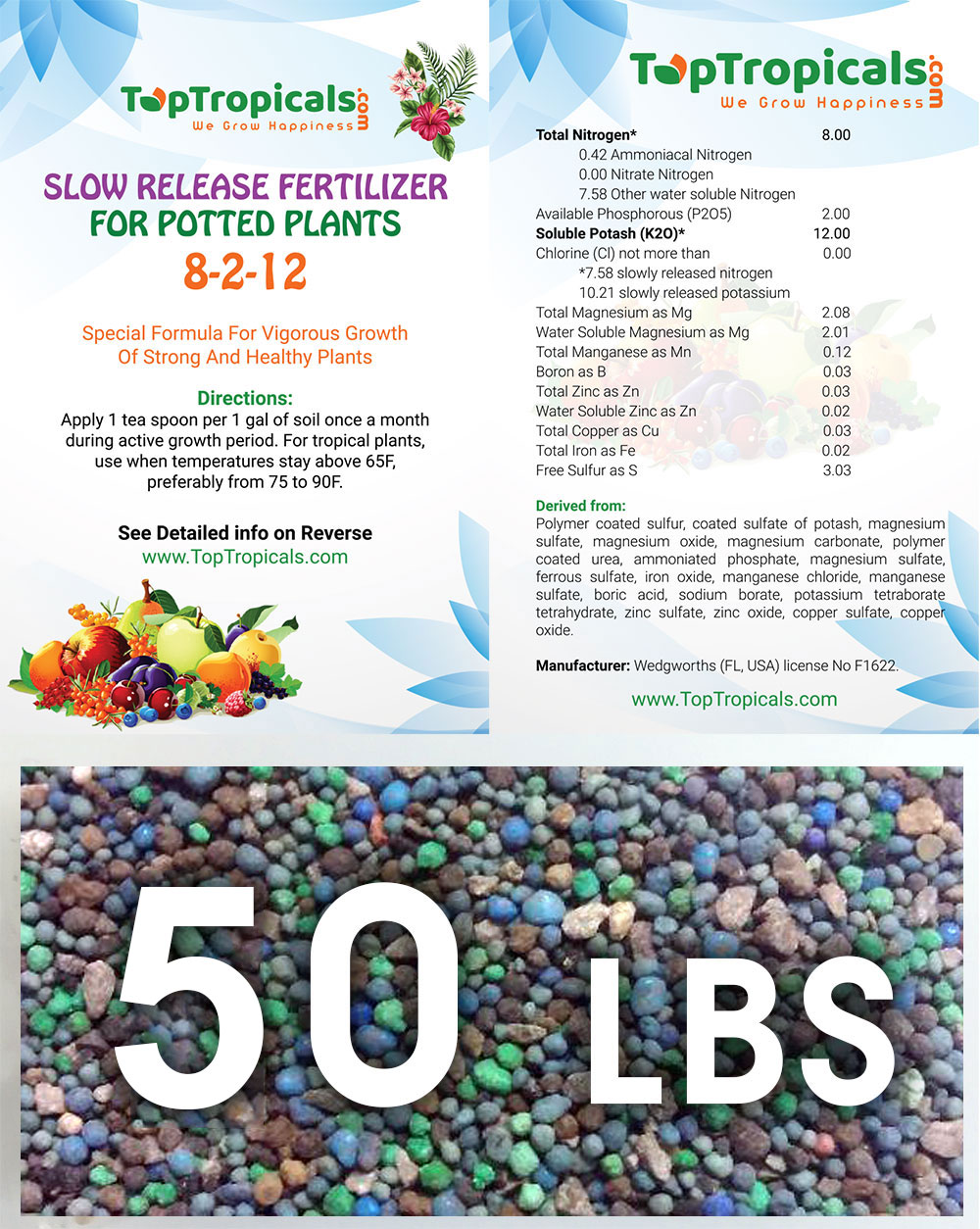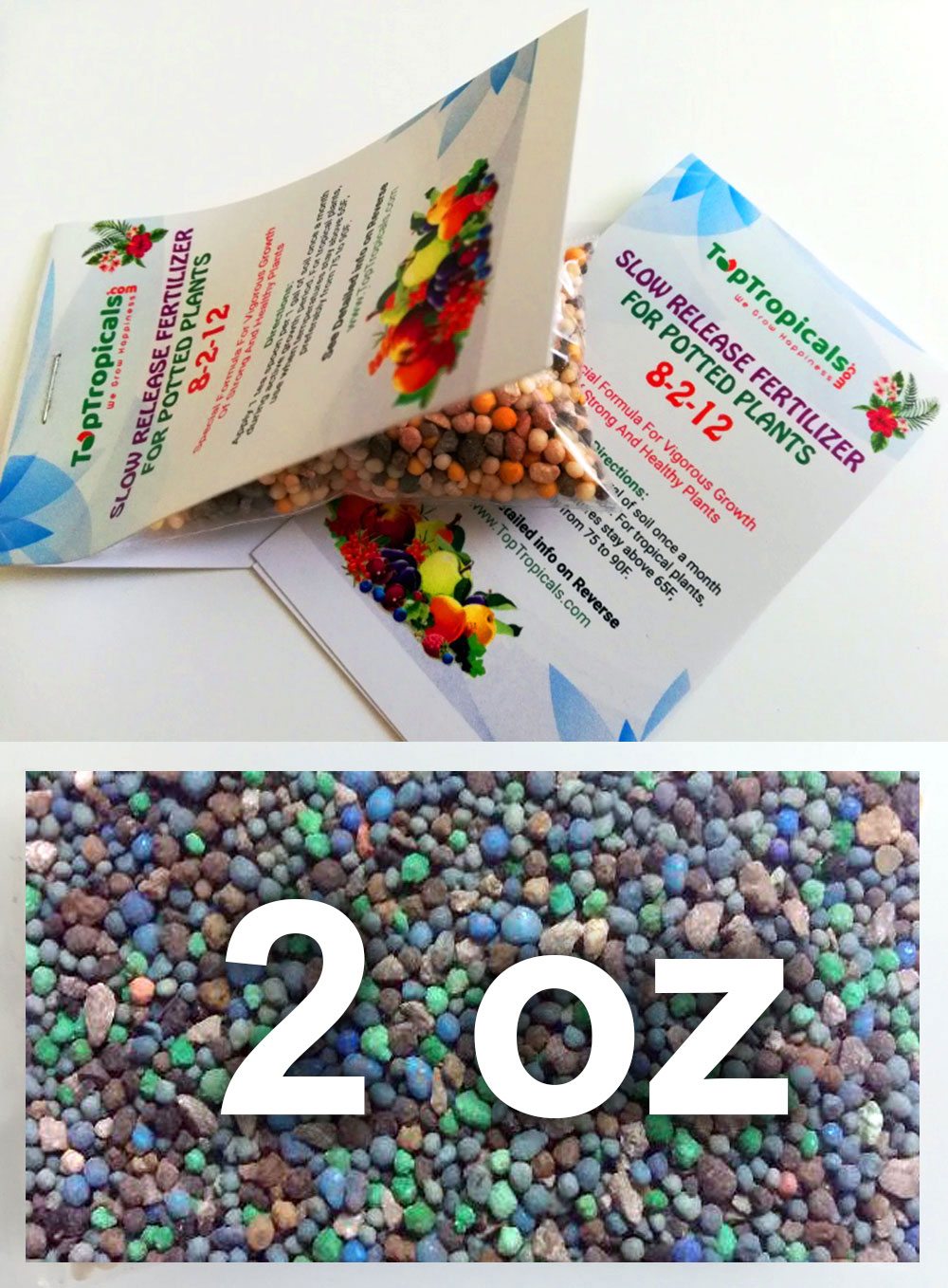Fertilizers (Macro and Micro elements)
Botanical name: Fertilizers
Common name: Macro and Micro elements
Plants, like living organisms, require adequate nutrition for grown. The concept of plant nutrition includes the following substances:
Carbon dioxide. In the process of photosynthesis with the participation of chlorophyll, in the leaves of plants from water, carbon dioxide and light, organic compounds are formed that participate in the construction of the organism. This is the main and only significant source of organic matter for plants.
MACRO-elements. The macroelements include inorganic compounds necessary for the vital activity of a living organism. The prefix macro-means a relatively high content of these elements in the composition of plants, respectively, their high demand. The macroelements include: carbon, hydrogen, oxygen, sodium, potassium, chlorine, sulfur, calcium, magnesium, nitrogen and phosphorus.
Liquid Sunshine Boosters - Mild stable formulas, can be used year-around. Organic acid-based, Sunshine Boosters are perfect for organic gardens, edibles and do not affect crop pure taste. Amino-acid stable formulas have NO EDTA chelators to eliminate nutrients lockup in soil. Pollinating insects friendly. Designed for continuous use, Sunshine Boosters contain no excess salts, maintain soil pH at optimal level (5.5-6.5) and do not require soil flushing or additional pH regulators. They can be use with every watering, year around.
Water-soluble fertilizers - dry (powdered) fertilizers that must be diluted in water before use. EDTA-chelated. Can be used only during hot weather, during active growth season.
Smart release (granulated) fertilizers - Slow-release during 1-3-6-12 month period. EDTA-chelated. Can be used only during hot weather, during active growth season.
MICROelements. Microelements are inorganic compounds involved in the synthesis of enzymes and biologically active substances. The content in a living organism is very low, but they play a vital role in the life of plants. The microelements include: iron, manganese, zinc, copper, boron, molybdenum, cobalt.
ULTRA-microelements. Very small amounts of almost all elements of the periodic table are contained in all organisms. They fall into plants with root nutrition from the soil. The necessity for the life of ultramicroelements is not fully proved. Of more or less necessary are considered: vanadium, iodine, nickel, titanium, aluminum, cadmium, fluorine (for plants).
See full article: The role of elements in plant nutrition.
Fertilizers, or Plant Food, contain macro- and micro-elements, for example:
Macro-elements: Nitrogen (N), Phosphate (P), Potassium (K).
Micro-elements: Boron (B), Molybdenum (Mo), Copper (Cu), Iron (Fe), Manganese (Mn), Zink (Zn), Sulfur (S).
Application: Follow directions on the labels. Do not exceed the recommended dose. Less concentration is always better than overdose. Generally, for tropical plants, dry fertilizers should be used only during the growth period when temperatures are above 65F, and Amino-acid based liquid fertilizers can be used year around.
See also: Plant Growth Hormones
For more information about Sunshine Boosters, see SUNSHINE BOOSTERS PAGE and learn more about Essential Nutrients.
This item may be shipped separately from plants.
This item may be shipped separately from plants.
This item may be shipped separately from plants.
Local pickup only. This item is not available for shipping. Local delivery may be available in Ft. Myers or Sebring, Florida. Contact us for an estimate. Non-pickup orders are subject to restocking fees.
This item may be shipped separately from plants.
This item may be shipped separately from plants.
This item may be shipped separately from plants.
Local pickup only. This item is not available for shipping. Local delivery may be available in Ft. Myers or Sebring, Florida. Contact us for an estimate. Non-pickup orders are subject to restocking fees.
This item may be shipped separately from plants.
